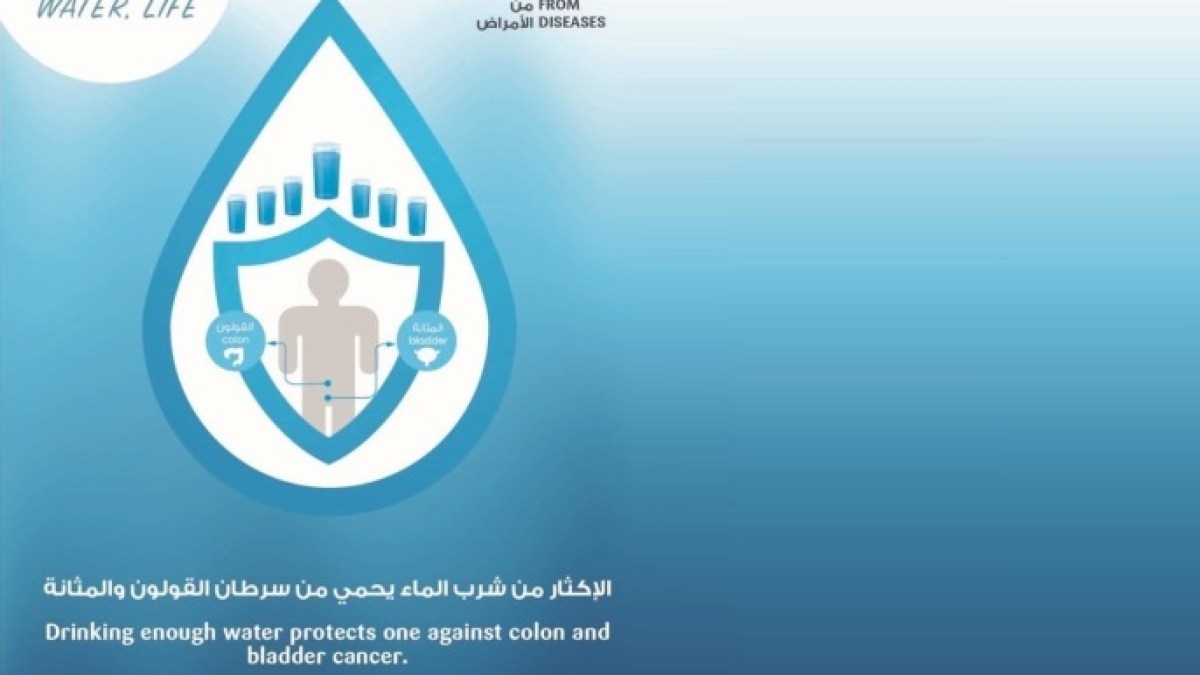A recent medical study concluded that a specific modification in the diet reduces the risk of men developing a serious disease, so what is the disease?
And what is this modification?
The disease is colorectal cancer, and the required adjustment is to eat more grains, fresh fruits and vegetables.
The study was conducted by researchers from the United States and South Korea, and was published in the journal BMC Medicine.
Healthy plant foods
The researchers found that in men, a diet rich in healthy plant foods was associated with a lower risk of colorectal cancer.
Among the healthy plant foods: legumes, vegetables, fresh fruits and whole grains.
Most of those diagnosed with colorectal cancer are over the age of 50, and it can affect younger people as well.
In recent years, cases in the elderly have begun to decline, but the incidence among young people is increasing.
However, these changes may be because cancer screening has become more effective.
The study included - according to the Healthline website - 173,427 participants belonging to various ethnic groups.
The results came after an average follow-up time of just over 19 years, and found that men who ate a healthy plant-based diet had lower rates of colorectal cancer.
The women in the study did not experience the same benefit.
The team found that men who ate the healthiest plant-based foods had a 22 percent lower risk of colorectal cancer.
Vegetables, fruits and whole grains
In general, vegetarian diets — especially healthy diets — have been associated with a lower risk of colorectal cancer in men, but not in women.
And unhealthy vegan diets don't seem to reduce the risk.
The American Cancer Society recommends that to reduce the risk of colorectal cancer, a person should eat plenty of vegetables, fruits, and whole grains, and limit the amount of meat they eat.
Professor Jaehye Kim, from Kyung Hee University, one of the study's authors, said - in a statement to Medical News Today - that antioxidants found in foods such as fruits, vegetables, and whole grains can contribute to reducing the risk of colorectal cancer by suppressing chronic inflammation that can lead to colorectal cancer. to cancer.
"Since men are at a higher risk of colorectal cancer than women, we suggest that this could help explain why a higher intake of healthy plant foods is associated with a reduced risk of colorectal cancer in men but not in women."
What is colorectal cancer?
It is a cancer that arises in the large intestine, also known as the colon or rectum, and usually affects middle-aged people, according to the King Hussein Cancer Foundation in Jordan.
Factors that increase the chances of colon cancer
Diet rich in red and processed meat.
The presence of polyps, which are growths on the inner wall of the large intestine, usually in people over the age of 50.
Over time, if these polyps are not removed, they may become cancerous and spread to other areas of the body.
Having a family history of colorectal cancer.
Having a personal history of cancer.
Symptoms of colon cancer
Colon cancer may not show any symptoms, especially in its early stages.
Therefore, the tests are effective in finding polyps and early detection of colorectal cancer, according to the King Hussein Cancer Foundation in Jordan.
Common symptoms of colon cancer:
constipation or diarrhoea.
Feeling that the bowel is not completely emptied.
The presence of blood in the stool.
Stools less dense than usual.
Frequent gas pains, bloating, or a feeling of fullness.
Losing weight for no reason.
Constant fatigue.
Vomiting and nausea.
Methods of diagnosing colon cancer
Fecal occult blood test.
Digital examinations of the rectum.
Sigmoidoscopy to examine the colon and rectum.
For patients with colon cancer, or there are suspicions of colon cancer, there are diagnostic techniques to detect cancer, including:
Double contrast barium enema (a special X-ray of the intestine).
Colonoscopy to study the tumor accurately.
MRI or ultrasound of the rectum.
CT scan of the chest, abdomen, and pelvis to detect the spread of cancer.
Carcinoembryonic antigen (CEA) is an important blood test that serves as an indicator of the disease.
These indicators should decrease with effective chemotherapy.
Colon cancer treatment
Colon cancer treatment can include surgery, chemotherapy or radiation, monoclonal antibody therapy, and post-treatment care.
The surgery is considered ineffective for patients with advanced stages of colon cancer that has spread. In this case, doctors resort to palliative care, according to the King Hussein Cancer Foundation in Jordan.

